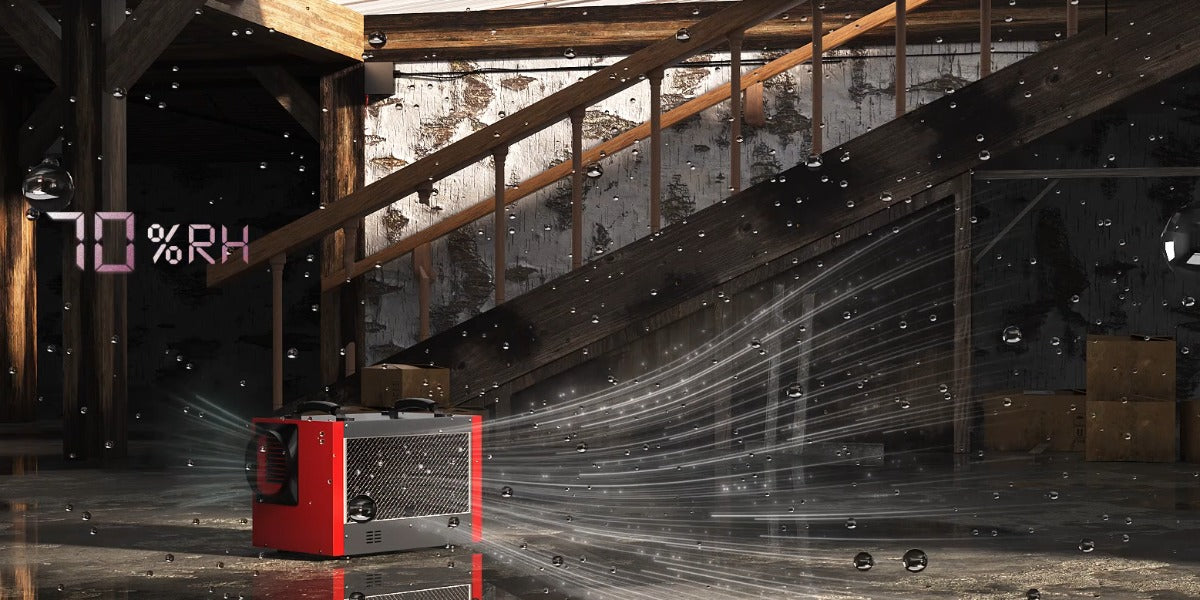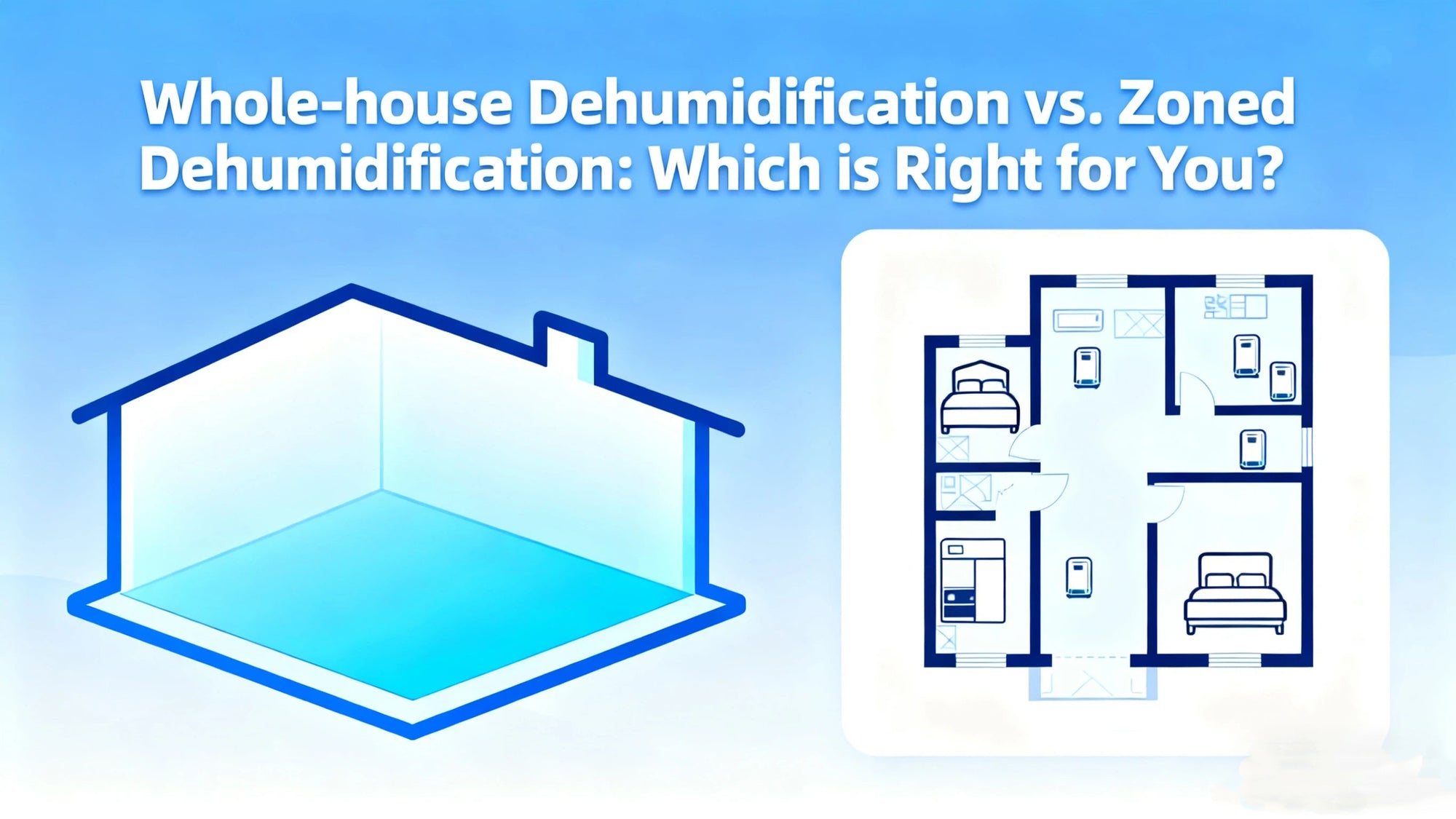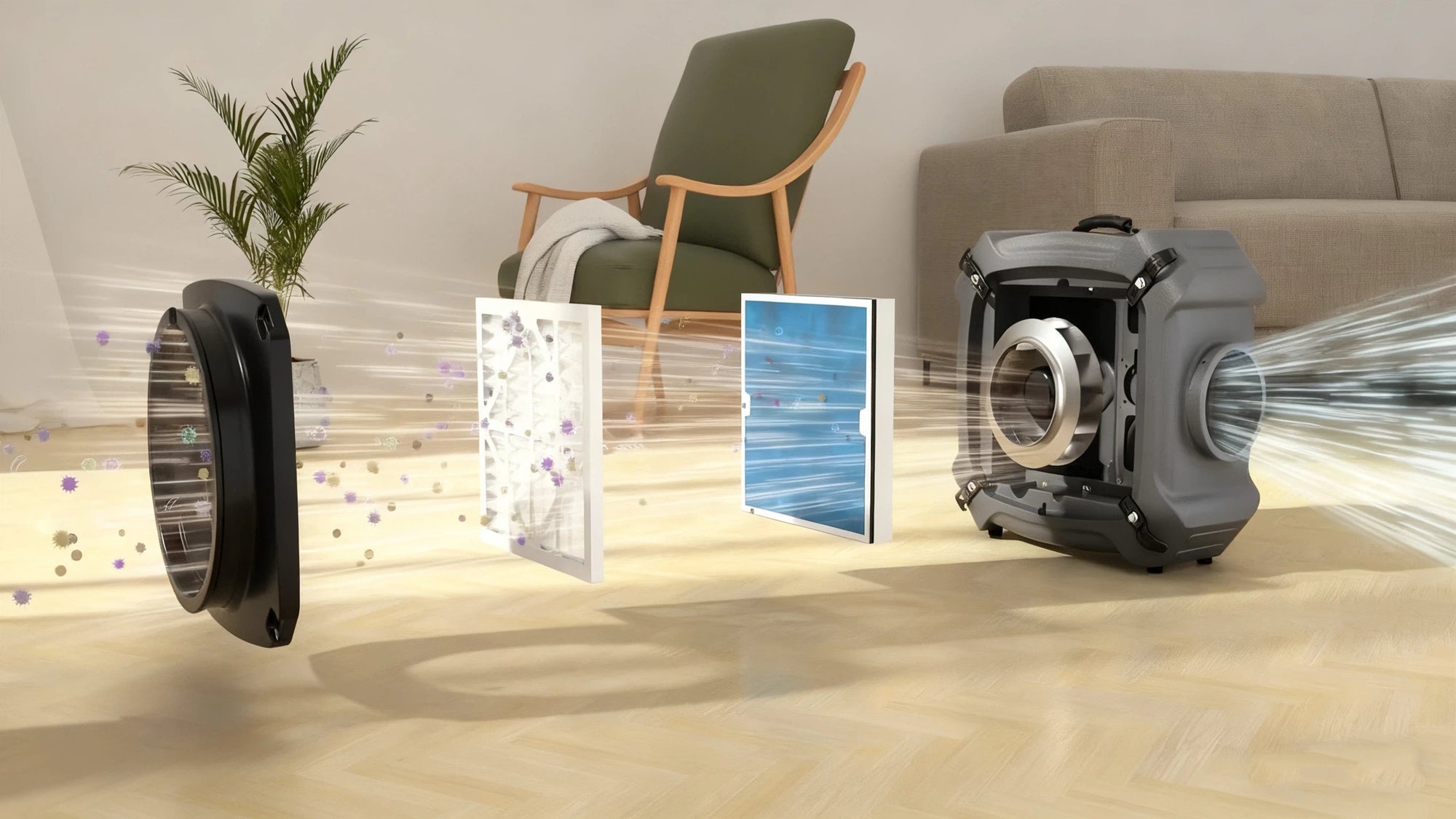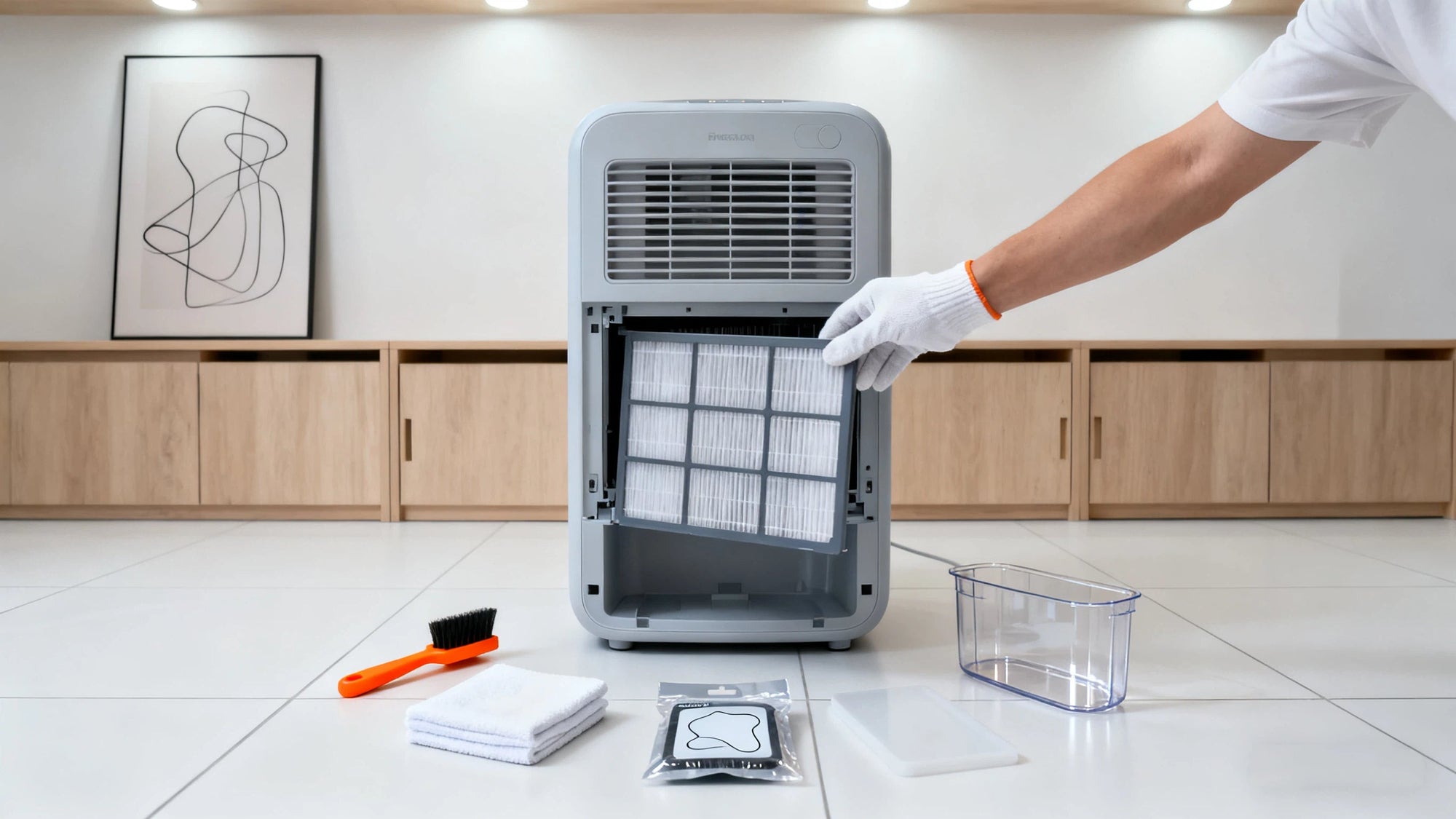Recycling your dehumidifier isn’t just about clearing out old appliances; it’s a critical step in reducing environmental harm. As appliances age, they can become inefficient and harmful if not disposed of properly. Many homeowners might be unaware that improper disposal of dehumidifiers can release toxic substances into the environment, contributing to pollution and posing health risks.
This guide is designed to help eco-conscious homeowners like you learn how to recycle a dehumidifier responsibly, minimizing your environmental footprint while promoting sustainable living.
Understanding Dehumidifier Components
Hazardous Materials
Dehumidifiers, like many other home appliances, contain components that are hazardous to both humans and the environment. Key among these are refrigerants, oils, and mercury.
Refrigerants are chemical compounds used in cooling systems, and when released into the atmosphere, they can deplete the ozone layer and accelerate climate change. Freon, a refrigerant made of chlorofluorocarbon gas, is used in refrigerators and some dehumidifiers and requires special handling.
Mercury, although less common in newer models, can still be found in some components, such as thermostats or switches. Mercury is highly toxic, and even small amounts can contaminate soil and water, making it critical to dispose of it properly.
Recyclable Components
Despite these hazards, dehumidifiers also contain valuable materials that can be recycled and reused. Copper, aluminum, steel, and various plastics are integral parts of these appliances. Copper is often found in the wiring and compressors, aluminum in the coils, and steel in the frame and casing. Recycling these materials reduces the need for new raw materials, saving energy and reducing greenhouse gas emissions associated with mining and production. For instance, recycling aluminum saves 95% of the energy required to produce it from raw materials, highlighting the environmental benefits of recycling dehumidifiers.
Preparation for Recycling
Emptying and Cleaning the Water Tank
Before recycling your dehumidifier, it’s essential to prepare it properly. Start by emptying the water tank to prevent mold growth and any potential spillage during transportation. Cleaning the tank thoroughly with mild soap and water will also ensure that no residue remains, which could complicate the recycling process.
Removing and Cleaning Filters
Filters play a crucial role in maintaining air quality by trapping dust and allergens. Over time, these filters can become clogged with debris. Remove and clean the filters, as some recycling programs may require them to be cleaned or even replaced. This step not only aids in recycling but also allows you to reuse the filters if they are still in good condition.
Proper Handling and Transportation
When handling and transporting the dehumidifier, be cautious to avoid any damage that might release hazardous materials. Place the unit in an upright position and secure it properly during transportation. If possible, wrap it in protective material to prevent any accidental damage that could lead to leaks of refrigerants or other hazardous substances.
Recycling Options
Appliance Store Programs
Many major appliance stores, including Home Depot, Lowe’s, and Best Buy, offer dehumidifier recycling programs. These programs often provide rebates or discounts on new purchases when you turn in your old unit. For example, Best Buy's Appliance recycling program allows customers to drop off up to three appliances per household per day, making it a convenient option for homeowners.
Local Recycling Centers
Local recycling centers are another great option for responsibly disposing of your dehumidifier. Many centers accept large appliances and may even offer monetary compensation for the recyclable materials they contain. To find a center near you, check with your city or county’s waste management services, or search online for certified e-waste recycling facilities or appliance recycling programs.
Municipal Waste Management Programs
Municipal waste management programs often include curbside bulky waste collection or designated drop-off days for large appliances like dehumidifiers. These programs are usually part of your regular waste management services, and they provide a straightforward option for recycling without having to transport the appliance far. Some municipalities may even host special recycling events, particularly around Earth Day or during spring cleaning periods.
Manufacturer Take-Back Programs
Several manufacturers have take-back programs that allow you to return your old dehumidifier when you purchase a new one. Brands like LG, Whirlpool, and Frigidaire are known to offer such initiatives, ensuring that the dehumidifiers are recycled according to industry standards. These programs often come with incentives, such as discounts on new products, making it a win-win for both the consumer and the environment.
Donation and Resale Options
Donating Working Units
If your dehumidifier is still in good working condition, donating it to a local charity or thrift store can be an excellent way to extend its life. Organizations like Goodwill and The Salvation Army often accept appliances that are still functional. This not only helps someone in need but also reduces waste by keeping the appliance out of the landfill.
Selling Online
Online platforms like eBay, Craigslist, or Facebook Marketplace provide opportunities to sell your dehumidifier. By selling, you can recoup some of your initial investment while ensuring the unit continues to be used. This option is particularly appealing if your dehumidifier is relatively new or has unique features that might be in demand.
Benefits of Reuse
Reuse is one of the most effective ways to reduce environmental impact. By donating or selling your dehumidifier, you’re contributing to a circular economy where products are used for as long as possible. This reduces the need for new products, conserves resources, and minimizes waste.
Responsible Appliance Disposal (RAD) Program
The EPA’s RAD Program
The Environmental Protection Agency (EPA) runs the Responsible Appliance Disposal (RAD) program, which partners with utilities, retailers, manufacturers, and other stakeholders to promote the safe disposal of old appliances. The program focuses on recovering and recycling ozone-depleting substances and greenhouse gases found in appliances like dehumidifiers.
Finding Participating RAD Partners
To find a RAD partner near you, visit the EPA’s website or contact your local utility company. These partners ensure that appliances are dismantled responsibly, with all hazardous materials properly managed and recycled, preventing environmental contamination.
DIY Recycling: Dos and Don’ts
Safe Component Removal
For those who prefer a hands-on approach, it’s possible to disassemble your dehumidifier and recycle the components separately. Start by removing the compressor, coils, and wiring, all of which contain valuable metals like copper and aluminum. However, be sure to handle these components carefully, as mishandling can lead to the release of refrigerants or oils.
Hazards to Avoid
One major caution for DIY recyclers: never attempt to remove or drain refrigerants yourself. These substances require professional handling to prevent environmental harm. Similarly, avoid disassembling parts that contain mercury, as even a small spill can pose significant health risks.
Environmental Benefits of Recycling Dehumidifiers
Resource Conservation
Recycling dehumidifiers plays a crucial role in conserving natural resources. Metals like copper and aluminum can be recycled indefinitely, reducing the need for new mining and lowering energy consumption. Recycling one ton of steel, for example, conserves 2,500 pounds of iron ore, 1,400 pounds of coal, and 120 pounds of limestone.
Reduction of Greenhouse Gas Emissions
By recycling, you help prevent the release of refrigerants that contribute to global warming. Proper recycling ensures that these harmful substances are contained and disposed of safely, thus reducing the overall greenhouse gas emissions.
Prevention of Hazardous Material Leakage
Recycling also prevents hazardous materials from leaking into the environment. By ensuring that your dehumidifier is recycled through proper channels, you protect both the environment and public health from contamination by substances like mercury and oils. Recycling reduces the overall environmental impact of dehumidifiers.
Environmentally Friendly Dehumidifiers
Learning how to recycle a dehumidifier responsibly is an important step towards becoming a responsible consumer. Whether you choose to recycle, donate, or resell, you’re making a positive impact. For more eco-friendly products and solutions, visit Abestorm to explore their collection of crawlspace dehumidifiers that are designed with sustainability in mind.









Shop For Dehumidifier
Abestorm 170 PPD 2,100 Sq.Ft Commercial Dehumidifier with Pump and Drain Hose | Hurricane 800
Abestorm 180 PPD 2,300 Sq.Ft Commercial Dehumidifier with Pump and Drain Hose | Hurricane LGR85
Abestorm 180 PPD 2,300 Sq.Ft Smart WIFI Commercial Dehumidifier with Pump and Drain Hose | Hurricane LGR85-Grey (wifi app not available now)
Abestorm 264 PPD 3,000 Sq.Ft Commercial Dehumidifier with Pump and Drain Hose | Hurricane 125P